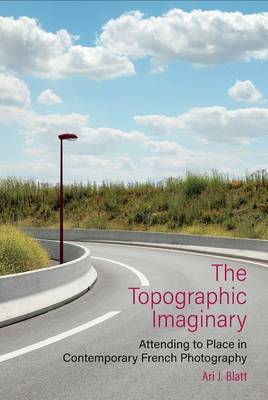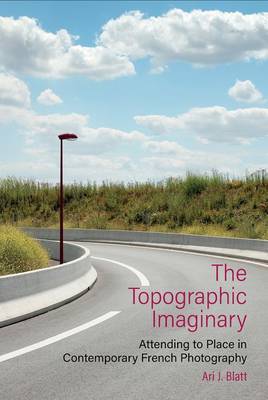
- Afhalen na 1 uur in een winkel met voorraad
- Gratis thuislevering in België vanaf € 30
- Ruim aanbod met 7 miljoen producten
- Afhalen na 1 uur in een winkel met voorraad
- Gratis thuislevering in België vanaf € 30
- Ruim aanbod met 7 miljoen producten
Omschrijving
Since the early 1980s, art photographers from metropolitan France have been training their lenses on ordinary landscapes throughout the country they call home. The Topographic Imaginary is the first book to study this important and flourishing trend. It examines work by artists who meld documentary and creative modes to attune viewers to places that mainstream culture tends to tune out, but which, as Ari J. Blatt argues, are in fact more meaningful than they initially appear. From views of building sites in Paris, peri-urban edgelands, or a tangle of trees in a forest, to those that ponder the play of light and shadow on roadside fields in Normandy or the tacky colors painted on dated village shopfronts, images that signal the emergence of a "topographic turn" in contemporary French photography constitute new ways of seeing and sensing France's diverse national territory. As Blatt suggests, they also represent a visual laboratory through which to investigate how landscape "scapes" our understanding of French culture. In their efforts to reimagine a more traditional and
time-worn idea of France's shared common space, topographic photographs animate
conversations about capital and class; cities and their peripheries; the
politics and impact of development; migration and borders; memory, history, and
affect; empire and postcolonialism; national identity; and the changing
environment. The Topographic Imaginary thus reveals how attending to place in pictures provides valuable insight into the disposition of a nation in flux.
Specificaties
Betrokkenen
- Auteur(s):
- Uitgeverij:
Inhoud
- Aantal bladzijden:
- 256
- Taal:
- Engels
- Reeks:
- Reeksnummer:
- nr. 84
Eigenschappen
- Productcode (EAN):
- 9781800856028
- Verschijningsdatum:
- 1/06/2022
- Uitvoering:
- Hardcover
- Formaat:
- Genaaid
- Afmetingen:
- 164 mm x 240 mm
- Gewicht:
- 1079 g

Alleen bij Standaard Boekhandel
Beoordelingen
We publiceren alleen reviews die voldoen aan de voorwaarden voor reviews. Bekijk onze voorwaarden voor reviews.











